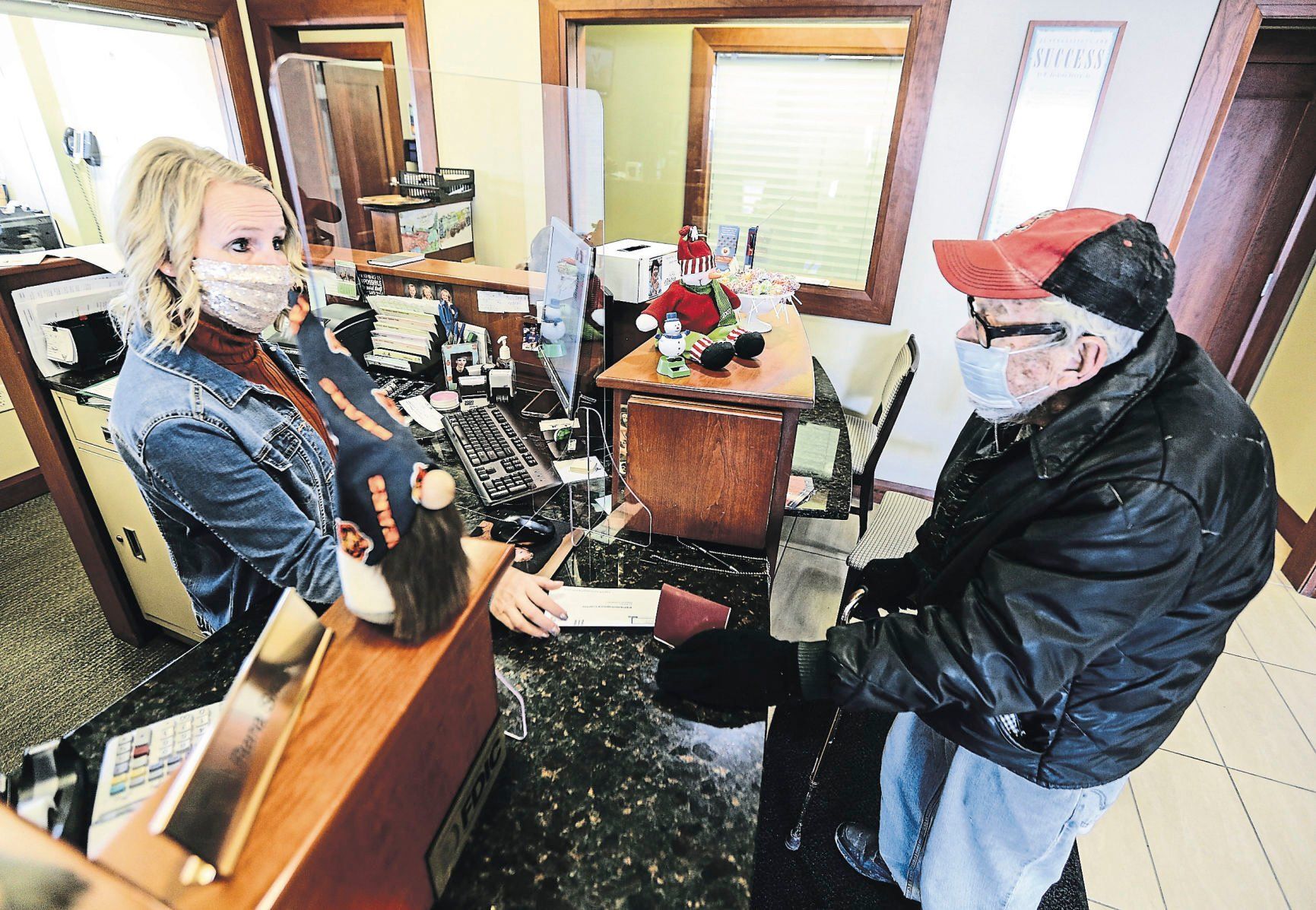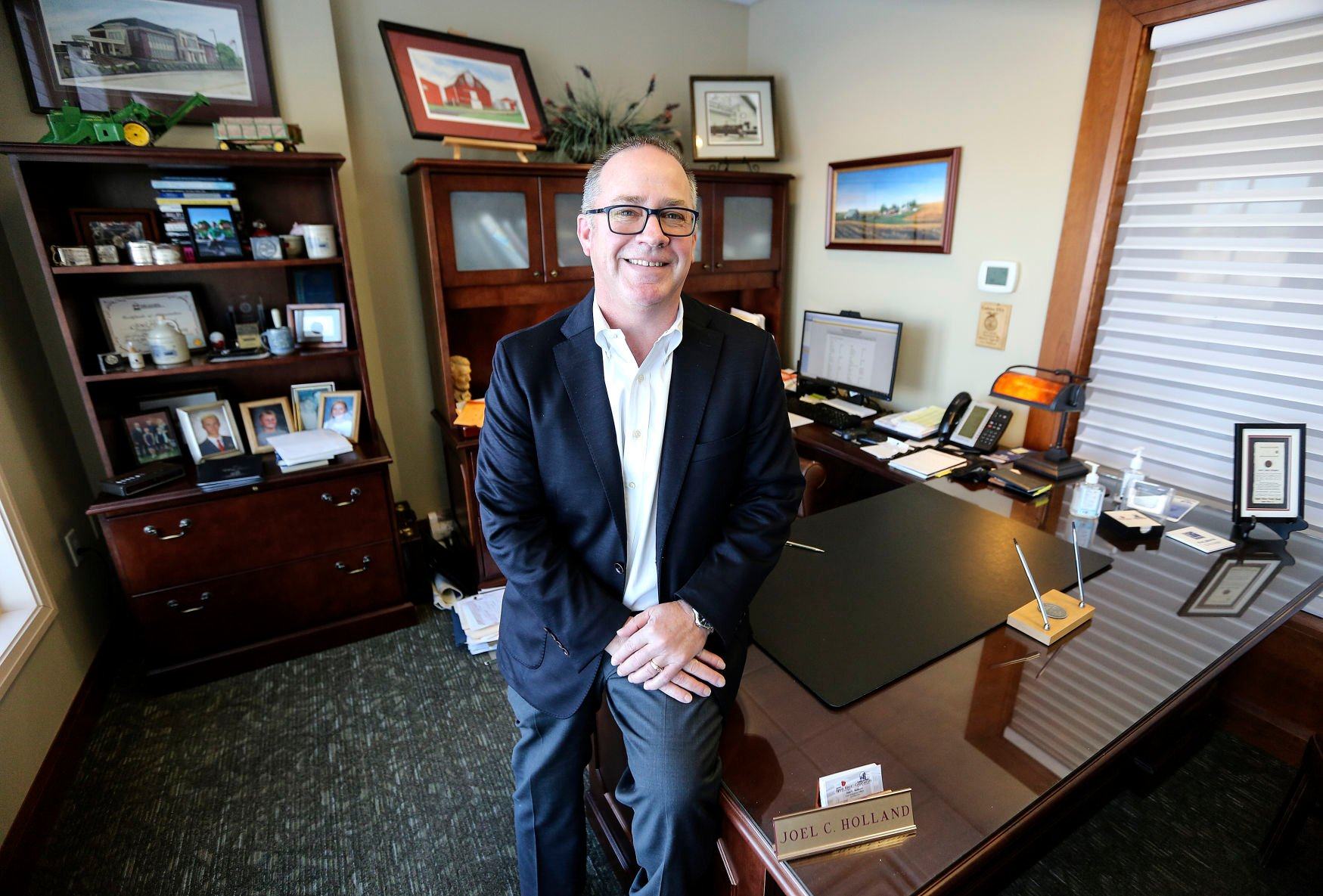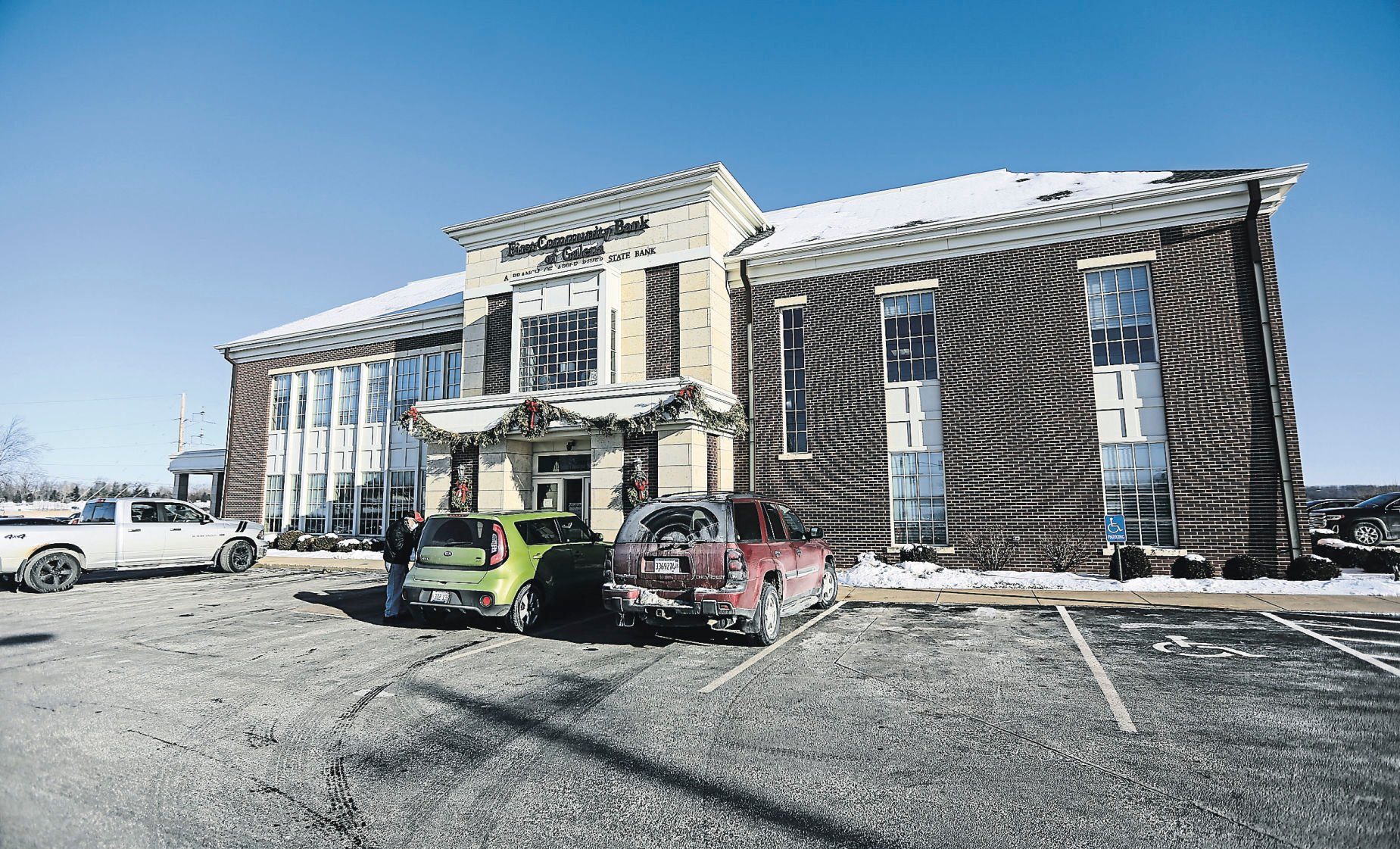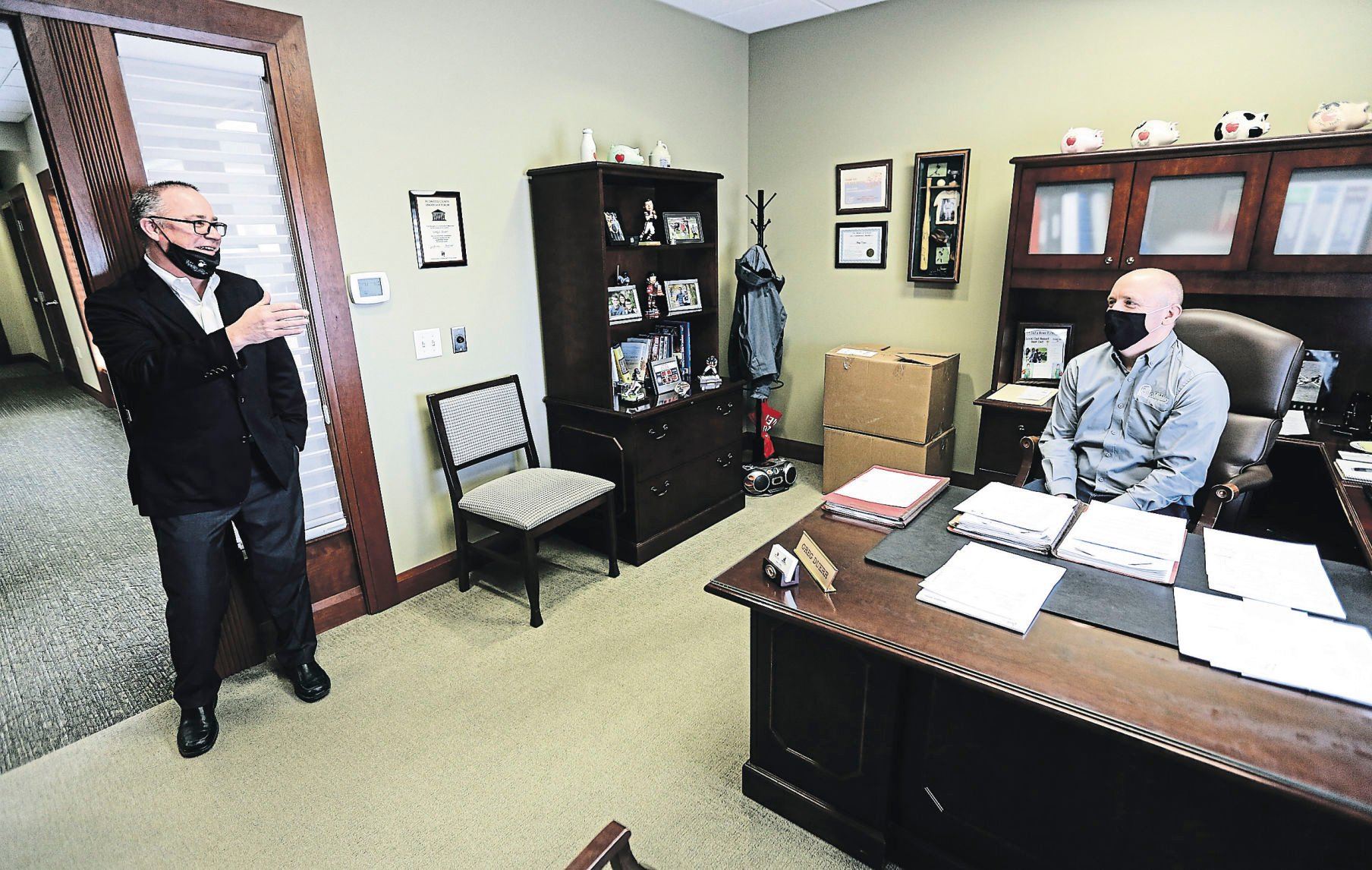The village of Apple River, Ill., lies deep in the rolling hills of Jo Daviess County and has a population of fewer than 400.
Smaller than one square mile in size, the small community doesn’t possess many of the staples of a small town, such as a police station.
But it does have a bank — one that serves a handful of other small communities as well.
“One of our big advantages is we are able to figure out and fulfill the community’s needs,” said Joel Holland, CEO of Apple River State Bank. “It is our job to help in taking care of the community.”
Founded in 1948, the bank has remained a central pillar of the Apple River community. Today, it has expanded to include branches in seven communities, nearly all of them small and rural like Apple River.
While larger cities like Dubuque boast a variety of banks and credit unions, many surrounding rural cities often only have one: Their small-town bank. And while they operate similarly, these banks also are faced with a multitude of unique advantages and challenges.
“Communities like having their own bank,” said Kay Orth, senior vice president of Benton State Bank. “They want to have a place nearby that they can trust.”
The bank was founded in Benton, Wis., in 1894 but since has expanded to Shullsburg and Tennyson-Potosi, Wis.
Orth said all of the branches have the same goal of matching the needs of the community. While part of that includes lending and banking services, she added that many small-town banks put extra effort into knowing their clients more personally.
“We are small enough in size to know all of our customers by name and know who they are,” she said. “It’s the kind of bank that you can walk into and have a conversation about family.”
Like a local grocery store or post office, small-town banks play a vital role in the cities they occupy, and as a result, there is more expectation for community involvement, Holland said. Many of Apple River State Bank’s locations participate in local events and are involved in fundraising for initiatives.
“We pride ourselves on our involvement in the communities,” Holland said. “Our employees are deeply embedded in the towns they work in and donate their time to making the community better.”
However, while small-town banks excel in providing the personal touch for customers, they also are expected to provide the same technical and convenient services that larger banking institutions have developed, including detailed websites and easy-access online banking. Other burdens can strain rural banks with limited staff. Orth said smaller banks must meet the same regulatory standards set by their federal and state governments, which can include extensive paperwork and bookkeeping.
“Compliance is a very large part of the banking world,” she said. “It’s tough to do when you have a limited staff. It results in everyone doing many different duties.”
Holland said staffing in general presents a challenge for small-town banks. With populations of fewer than 1,000 in many of the communities in which such banks are located, the pool of available workers often is small. And many of those communities are seeing their populations fall.
“Lobbies aren’t going to be as busy, but you still need to have a bare minimum number of people in a branch office,” Holland said. “Filling all those staffing positions can be challenging.”
Small banking operations are among those that have dwindled over time. In 1985, there were 18,033 banks registered under the Federal Deposit Insurance Corp. Today, that total is 4,914.
However, Holland said smaller banks are working to specifically tailor their banking business to “low-growth markets” and have found success in providing niche banking services to rural areas.
For now, these communities are large enough to support smaller banking operations, and many of these smaller banks were started in the small towns they occupy by the residents who live in them, meaning that it is both good business and a matter of community service to offer their services to rural towns.
“We establish banks in communities where larger banking organizations are not interested in,” Holland said. “We’re filling an essential need for many of these communities, and as members of those communities, that’s something we are proud to do.”





